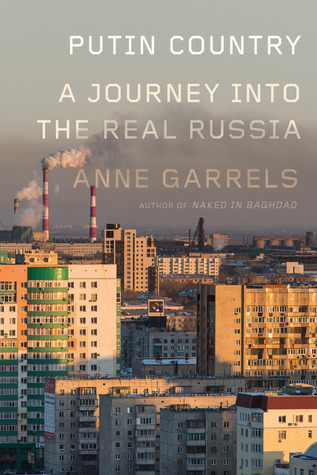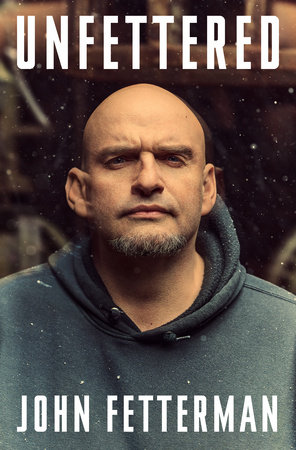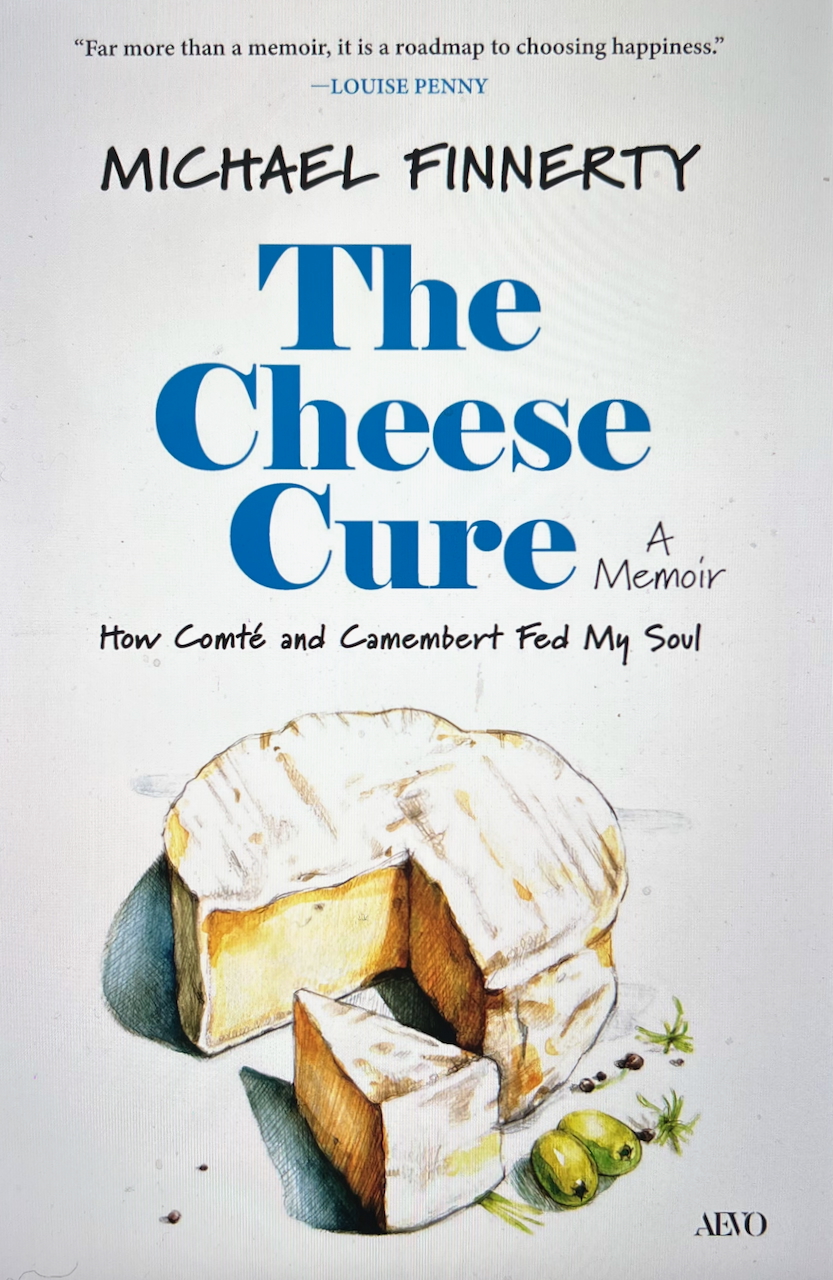Town Without Pity
Fear, loathing, and Putin in the provinces.
November 10, 2017

Putin Country: A Journey Into the Real Russia
In Putin Country: A Journey Into The Real Russia, Anne Garrels attempts to show how people in post-Soviet Russia have been faring since the collapse of the Soviet Union, with a focus on Vladimir Putin’s years in power. She also tries to understand why so many people have continued to support Putin ardently throughout these years. This book is particularly interesting because it focuses on ordinary people living in the city of Chelyabinsk, located roughly a thousand miles from Moscow. Garrels’s journalistic approach to the book is both its strength and its weakness. She is adept at meeting people, establishing rapport, eliciting their stories (she speaks fluent Russian), and weaving them into the book. She leaves judgment and commentary up to the reader. At the same time, she subtly reinforces certain long-standing stereotypes about Russians, which lessens the impact of this work.
Garrels originally chose the city of Chelyabinsk because she was interested in understanding what was truly happening in Russia after the breakup of the Soviet Union, beyond Moscow, the usual focus of Western media. “… most Russian citizens, including the members of many diverse ethnic groups, live elsewhere. Dispersed across a vast landscape, they both admire and resent the Moscow megalopolis. I decided I needed to find a place far beyond the capital’s Ring Road where I could follow these citizens of the new Russia as they picked their way through the rubble of a political, ethnic, social, and economic earthquake.” (4-5) Her method of deciding which area to actually focus on was to throw a sharpened pencil at a big wall map in her office and to see what it hit. Chelyabinsk was it. Garrels began traveling to that city in 1993 and continued to do so fairly regularly for the next 20-plus years.
Her [Garrels’s] method of deciding which area to actually focus on was to throw a sharpened pencil at a big wall map in her office and to see what it hit. Chelyabinsk was it.
The region of Chelyabinsk, of which Chelyabinsk is the capital city, has a population of only 3 million people and is approximately the size of Austria. It is located on the southern edge of the Ural mountains, which divide the western, European, part of Russia from Siberia. The region is rich in minerals and coal, as well as natural beauty. (5) It is also “known to be one of the most polluted places on the planet because of a once-secret nuclear accident and choked by clouds of industrial waste.”(4) The city of Chelyabinsk itself was founded in the 18th century as a military outpost for the czar’s army as Russia expanded its territory eastward. In the 19th century, it became a trading center that connected the Russian empire and China. With the construction of the trans-Siberian railroad at the turn of the 20th century, the population quickly exploded to about 75,000. After the 1917 revolution and the civil war that followed, there was widespread starvation. Eventually, because of the local mines and mineral wealth, it was decided that Chelyabinsk would become a focal point of Stalin’s first five-year plan. In order to replenish the labor force, which had been depleted during the difficult years following the revolution and civil war, workers and specialists had to be brought to the city and to the region, including political prisoners, kulaks (so-called rich peasants), and, later, when war broke out with Germany in 1941, Soviet citizens of German descent. They were forced to build metallurgical and chemical plants, as well as a new tractor and tank factory under harsh, inhuman conditions. At one point, Chelyabinsk was known as Tankograd. Later, Stalin chose the region to develop his secret nuclear weapons program. At this point, the entire region, including the city of Chelyabinsk, was closed to foreigners. (28-31)
When Garrels first arrived in 1993, shortly after the region had been opened again to outsiders. “Chelyabinsk was a depressing place, where people were alternately desperate, hopeful, and fearful as changes emanated from Moscow.” (6) Factories were no longer subsidized by the government and lacked the infrastructure needed to be competitive in the newly emerging market economy. A whole new vocabulary and set of ideas were gripping the country, and Chelyabinsk, like most of Russia, was ill-prepared.”(6) Garrels was among the first foreigners to visit the city, which lacked adequate hotel accommodations. For this reason, she was housed in a Communist Party guesthouse, which was still only barely acceptable, with its “…. peeling wallpaper, and pink nylon curtains—and its distinct smell of Soviet antiseptic and cigarettes, a smell that still permeated the country.” (7) Unlike in Moscow, there were as of yet no new restaurants or casinos, just a few private clubs that catered to the small number of people who happened to have cash to spend, “… men in black … who looked as if they had just walked out of a bad gangster movie,” (7) and who were likely members of new criminal gangs that were running protection rings, shaking down shops, private businesses, and factories. “The head of the city’s police department admitted his men were outgunned, outmaneuvered, or complicit.” Factory workers also were not being paid in cash, but in “bizarre goods like crystal vases or industrial pipe.”(7) Living conditions for people working in the mines were “appalling, even by Soviet standards.” (7) “The National GDP fell 34 percent between 1991 and 1995.” (8)
Garrels makes the point that few Westerners can really appreciate how unpopular Boris Yeltsin was by the time he resigned at the end of 1999 and appointed Vladimir Putin as his successor. When life stabilized under Putin, even as he aggressively began to consolidate power in the Kremlin, blocked most opposition parties from registering, reinstated the practice of appointing rather than electing regional governors, and took control of all the main television stations, “Most Russians didn’t complain.”
As money, power, and prestige concentrated in Moscow throughout the 1990s, people living in Chelyabinsk were struggling with rampant inflation, low or no salaries, housing issues, and rising crime and corruption. “It was exhausting and demoralizing. For many in Chelyabinsk, and indeed the rest of Russia, democracy and ‘reform’ were synonymous with hunger, crime, and a steep deterioration in social services.” (10) Garrels makes the point that few Westerners can really appreciate how unpopular Boris Yeltsin was by the time he resigned at the end of 1999 and appointed Vladimir Putin as his successor. When life stabilized under Putin, even as he aggressively began to consolidate power in the Kremlin, blocked most opposition parties from registering, reinstated the practice of appointing rather than electing regional governors, and took control of all the main television stations, “Most Russians didn’t complain.” (11)
By 2012, the beginning of a period in Garrels’ life when she was able to spend months in Chelyabinsk, rather than depend on shorter trips to do her journalistic work, the city was a very different place than it had been in 1993. There was a cobbled pedestrian shopping zone, new restaurants and cafes, travel agencies, and American and European hotel chains, such as Holiday Inn and Radisson. People carried smartphones and wore designer clothing. Life under Putin seemed a lot better. However, just under the surface of this apparent new way of life, there remained the same, ever present, issues of crime, corruption, and fear. As Garrels writes, “All the hotels have one thing in common: their owners or partners are in the government or have close ties to it. Access to what was not long ago state land is a murky business and public auctions are easy to fiddle with, with the right contacts. This is Russian ‘entrepreneurship’; to maintain the necessary contacts, you pay the minions of the fiddler, who is ultimately Vladimir Putin.” (15-16) In 2012, the roads were also better paved, but the cost per mile was “astronomical given the corruption involved.” (17) In addition, while people had access to credit so that they could improve their apartments and basic living conditions, the first thing most would do was “install criminal-proof outer doors.”(18) Underlying many of Garrels’ interviews with people is this dichotomy between improved living conditions and more stability and a basic underlying, potentially destabilizing layer of corruption that persists, no matter who is leading Russia.
By 2012, there were small- to medium-sized businesses in Chelyabinsk that could “generally avoid political pressure as long as they did not rock the wrong boats. Even so, the corrupt, inefficient and overly complicated bureaucracy remained a serious, time-consuming, and expensive impediment.”(18) Garrels did find an exception to this rule in the general manager and owner of the Chelyabinsk Compressor Plant, Albert Raisovich Yalaletdinov, but even so, he had to contend with the corruption around him, which he said was “enormous.”(20) Yalaletdinov was a professor of agricultural technology before the economic crisis of the early 1990s. Since he was no longer getting paid during that time, he started doing whatever he could to support his family. In 1996, he came up with the idea to start making Russian-made compressors. Finally, in 2002, he got access to bank credit. By 2012, he had 400 well-paid employees. While he did not deal directly in illegal goods, he did say that he provided compressors to a middle-man, rather than directly to “government officials who regularly demand fake, inflated receipts so that they can skim off the top.” What the middle-man did was “his business. My business is to make good compressors at proper prices.” (20) Optimists remained hopeful in 2012 that more businessmen would follow Yalaletdinov’s example. Garrels’s opinion was that “for now, most everyone seems apathetic, cowed, or bought.” (21)
Just as Yalaletdinov was forced by the circumstances of the early 1990s to change his profession, Alexander Vlasov, the Chelyabinsk region’s deputy forensic pathologist was forced to change his. Given his training, becoming a funeral director seemed like a potentially lucrative move. In the beginning, he had no competition, but also no materials with which to start such a business. He began by building coffins from fence wood himself. Throughout the 1990s, thanks to the part of his customer base that was made up of wealthy local criminals, his business did extremely well. His family was able to move to a spacious, open apartment, filled with imported leather furniture and modern appliances. He was even able to buy a second apartment for his son and his family next door to his own. Irina, his wife, a former pediatrician, was frustrated and bitter, even as she enjoyed the family’s wealth. The luxury they lived in, according to Garrels’s information, had come with “intimidation, death threats, and jail time … .”(167) As Vlasov’s funeral business prospered, he was pressured to pay off city officials. He resisted. One morning, as he pulled out onto the street, he heard something fall off his car. It was an unexploded grenade. Another time, police confiscated $2,000 from his office, claiming the money was fake and didn’t return it. In 2001, Vlasov was accused of giving bribes and spent two months in prison awaiting trial. In 2005, with the appointment of a new mayor, demands for payoffs increased. Vlasov was once again approached with “requests” for payment in order to continue his business. He paid up, but by the fourth month, the monthly fee had reached $16,000. It was too much and he refused. (169) In 2008, his deputy was gunned down as he left their downtown office. The killer was apprehended and claimed that he had been paid off by a high-level official. The gunman was convicted, but there were no investigations into who had actually hired him. Vlasov felt the message was clear. He would be next. He closed down his business. After that, he figured out creative ways to protect his assets, but he remained in debt and was banned from traveling abroad. Still, he did npt completely give up. During one of her later visits to the family, Garrels writes, “Alexander Vlasov is now in his early sixties. He is too thin, he chain-smokes and drinks way too much brut … .”(170) He continued to work as an independent forensic expert. Vlasov summed up his relationship with the authorities this way, “… they know I don’t like them, but today they need me.”(171)
In contrast to Vlasov and Yalaletdinov, Irina Korsunova, “a thirty-something magazine editor” (26) had access to an elite Swiss finishing school and was able to travel widely when she was younger. When Garrels met with her in 2012, she was married to a successful engineer, was solidly middle-class, and firmly believed that “Russia has been and can again be an example for the world …”(26) The magazine she edited was subsidized by the regional government and promoted Chelyabinsk to potential investors. “Were you to flip through it, you would get the sense that you were in Berlin, not a beleaguered, corrupt Russian industrial city. But there is a tiny part of the city that can afford the lifestyle promoted by the magazine, and Irina wants to see only the best here.” (26) Irina represents a particular type of person who lives in Chelyabinsk: People who are sick of their country’s being seen as a “mafia-ridden kleptocracy—even though they are the first to complain about corruption.”(27)
By the end of the book, I had more an impressionistic sense of the place and the people who populate it, rather than a true grasp of the complex environmental, social, political, and economic issues touched upon over the course of the book’s eighteen chapters. I also lost track of one of the main questions Garrels’ seems to be striving to answer in the book, which is why Putin continues to garner such strong support throughout Russia, even as living conditions, although better, remain at levels that often hover close to being unacceptable.
Yaleletdinov, Vlasov, and Korsunova are just three of the many people chronicled by Garrels in this book. While each of the stories is interesting and well told, it was not long before the relentless barrage had begun to obscure the overarching narrative, which I lost track of somewhere after the opening chapters. By the end of the book, I had more an impressionistic sense of the place and the people who populate it, rather than a true grasp of the complex environmental, social, political, and economic issues touched upon over the course of the book’s eighteen chapters. I also lost track of one of the main questions Garrels’ seems to be striving to answer in the book, which is why Putin continues to garner such strong support throughout Russia, even as living conditions, although better, remain at levels that often hover close to being unacceptable.
Early on in the book, Garrels recounts the events surrounding the decline of Chelyabinsk’s “steel and mining giant,” Mechel (21). Even though Putin was personally responsible for what eventually led to its downfall, he was never blamed. He was also not blamed “for failing to diversify a Russian economy that relies too heavily on oil and gas revenues.” (21) Garrels posits that perhaps it is “because many cannot imagine who could possibly replace him.” (22) This idea of acceptance based on lack of alternatives is repeated several times throughout the book by various people. To go one step further, Garrels also provides examples of people who personally apply to Putin for help in solving local problems. In a discussion of the city of Snezhinsk, for example, located not far from Chelyabinsk and still controlled by Russia’s Nuclear Ministry and the security services and therefore closed to outsiders, the topic of boredom comes up. To highlight this point, Garrels writes, ”In 2013, a glamorous young student at one of Snezhinsk’s science institutes made news when she wrote an open letter to President Vladimir Putin pleading with him to do something to make life more interesting for young people in the ‘forbidden’ zones.” (149) The letter sparked a brief debate about whether or not closed cities should be opened. Whether or not Putin responded is not known. In the winter of 2015, Putin was again applied to, this time by the residents of Chelyabinsk. The smog in the city was so bad that they “went over the heads of local authorities, begging Present Putin to do something about it.” (209) Although Garrels does not follow up on either of these petitions to Putin, I found it significant that ordinary Russians are still personally petitioning the supreme ruler for help with local problems, just as they have been doing since the times of the Russian czars.
As if to emphasize that this practice is still going strong in Russia in 2017, I recently read in a New York Times article about a bootlegging scandal in Irkutsk (where more than 70 people died from severe alcohol poisoning), that a local woman who sells vegetables at the market pleaded, “Tell Moscow, tell Putin, that they are closing the market.” (Neil MacFarquhar, “The Booze Can Kill, and Putin is Deemed a ‘Good Czar’,” New York Times, February 18, 2017). It certainly seems that to this day, Russians, who are able to endure a great deal of strife and suffering, far from blaming their leader, in this case Putin, see him as a benign all-knowing, all-caring protector of the common people; someone who might be deferentially petitioned to in time of need. When a businessman in Irkutsk says, at the end of the New York Times article, “I like Putin. He is a good czar, and Russia needs a czar,” the message is clear. In the midst of all the change, instability, and loss of international standing, the average Russian is still looking for someone to take control, turn all this around, and restore Russia to its former greatness.
In the end, Garrels’s message that life in Russia—the Russia that is not Moscow—is hard and evolving differently than in the capital city is well made. As a good journalist, she lets the stories speak for themselves. The book has an emotional impact, even though it might lack the type of insights and predictions I had been hoping to take with me when I finished it. I found the book engaging, although I cannot say that I liked it. One reason for this dislike was the lack of analysis. I understand the need for people’s stories to speak for themselves, but the lack of even chronological structure, while it left me with a visceral reaction at the end of the book, did not prompt me to want to delve more deeply into any of the specific issues I had read about.
Perhaps more importantly, as I read the book, it became more and more clear to me that even Garrels, someone with a great deal of knowledge about, and a deep commitment to Russia and Russian culture, and who writes with such compassion about her subject, could not refrain from reinforcing many of the most prevalent stereotypes Americans hold about Russia and about Russians. For example, the very premise of the book, how Garrels chose Chelyabinsk as a focal point for her project, by throwing a pencil at a map, seems somehow less serious and slightly more demeaning than the topic deserves. Her pages are filled with “babes,” (7 “stylish women in four-inch heels,” (15) “screwed up teenagers” who have sex in a restaurant bathroom with a fifty-something member of a biker gang, whose members are “preening in their leathers and petting their expensive Yamahas and Harleys,” (16) people who live in mini- mansions and long for foreign designers to make their homes more tasteful, (18) a thirty-something magazine editor who serves Garrels “sushi and pizza” for dinner and whose personal fashion and magazine are similarly described as “glossy.” (26) Even a “Julia Roberts look-alike” appears. (197)
There is also the subtle use of English words pronounced with a Russian accent. Garrels writes, “The proliferation of Russian-accented English words transcribed into Cyrillic letters is mind-boggling. The “‘restaurans’ advertise ‘kreizy menus’ to lure people for ‘biznes lanches.’” The new rich live in ‘taoon haoozes’ or ‘kottedges,’ a somewhat fanciful word for the new mini-mansions. … The underlying message, is that even those of us who study and write about Russia may harbor an unconscious feeling of cultural superiority.
There is also the subtle use of English words pronounced with a Russian accent. Garrels writes, “The proliferation of Russian-accented English words transcribed into Cyrillic letters is mind-boggling. The “ ‘restaurans’ advertise ‘kreizy menus’ to lure people for ‘biznes lanches.’” The new rich live in ‘taoon haoozes’ or ‘kottedges,’ a somewhat fanciful word for the new mini-mansions. This all drives some populists in Russia’s parliament ‘kreizy,’ but ‘oh my God,’ another new addition, they have so far been unable to stanch the flow.” (13-14) And neither can Garrels. Later, when describing the new abundance of after-school programs, she devotes several paragraphs, more space than to any other single activity, to cheerleading squads in the Chelyabinsk region. “Yes. ‘Cheerleading’ it is indeed called, albeit in accented Russian … Their hired coach, Anastasia, wears a T-shirt emblazoned with the English words ‘SUPER CHEER COACH,’… As they go through their routines, accented English phrases like ‘basket toss,’ ‘chicken position,’ ‘flier,’ and ‘catcher,’ echo in the cavernous hall.” (104-105). I have often thought about how and why we might make use of these Russian accented English words. The effect can be subtle. Just like the “kreizy menus”and ”taoon haoozes,” the “SUPER CHEER COACH” and even the whole cheerleading endeavor, becomes, somehow, hard to take seriously.
The underlying message, is that even those of us who study and write about Russia may harbor an unconscious feeling of cultural superiority. Even as we profess a true and authentic interest in, and commitment to, learning about Russia and Russian culture, we may still fall into this pattern of unconscious bias. Although Garrels meticulously and with obvious concern details the compelling stories a large number of ordinary people living in and around the city of Chelyabinsk, I do not think her book does anything to dispel this attitude.





